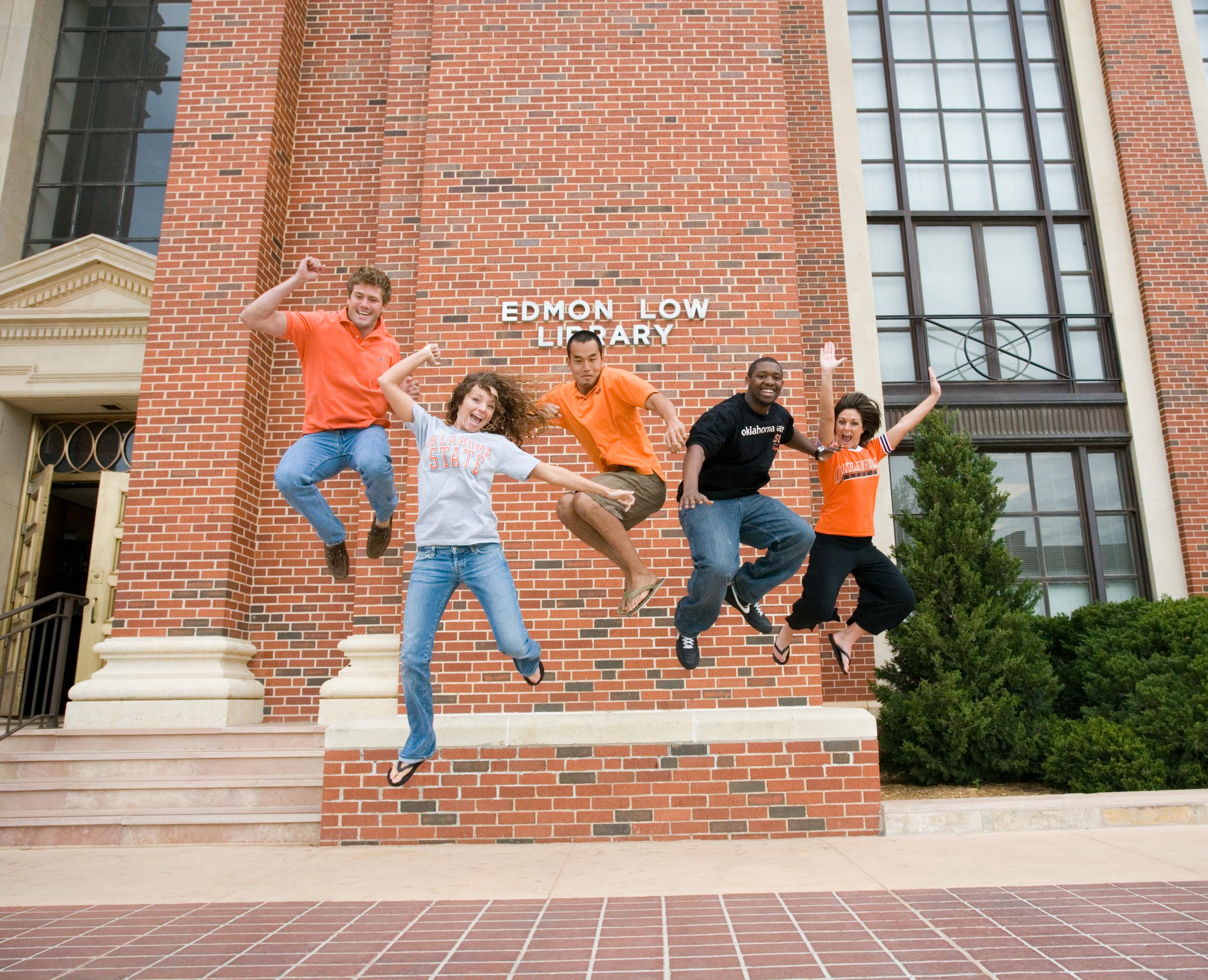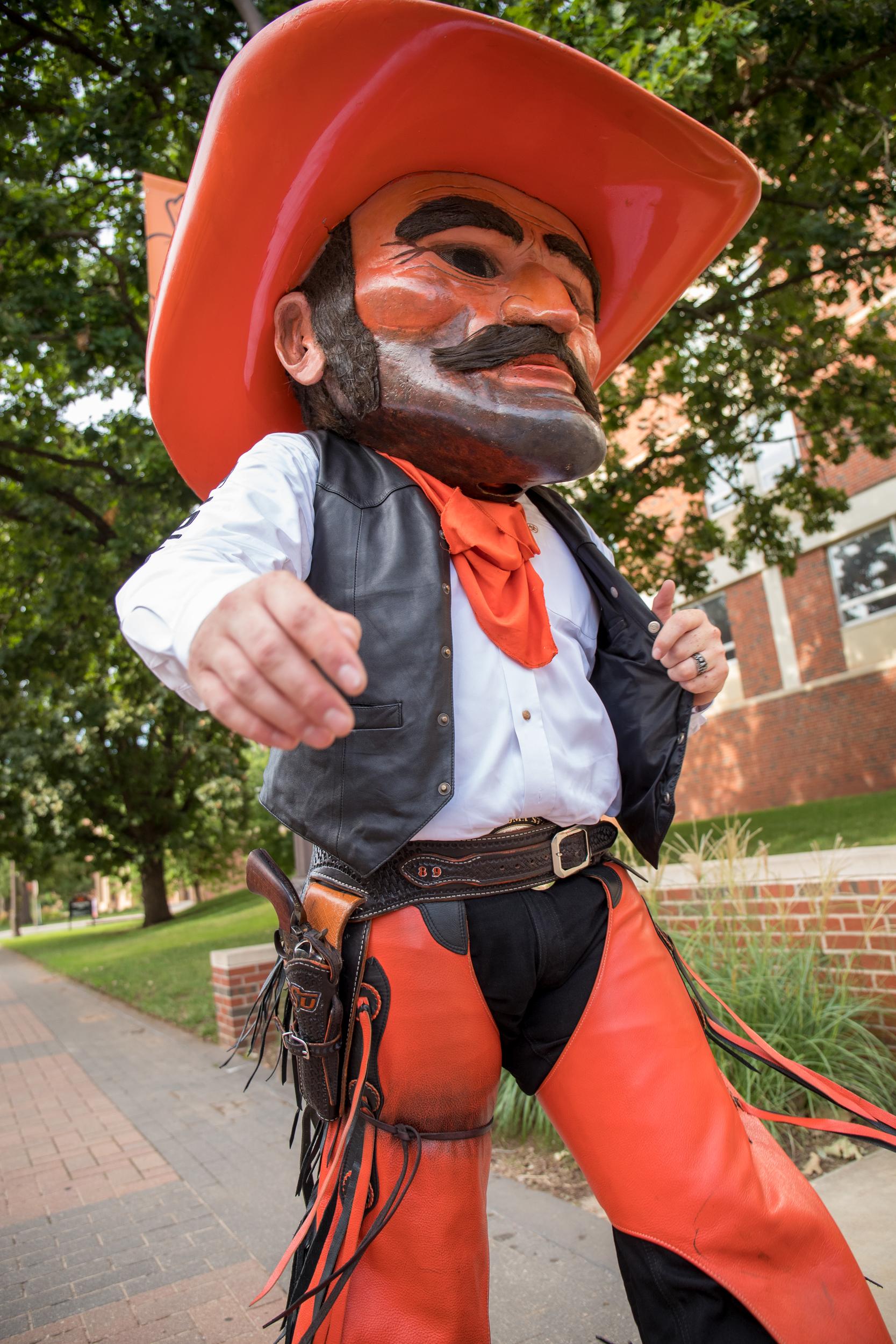8.1 Library Resources
Click below to play an audio file of this section of the chapter sponsored by the Women for OSU Partnering to Impact grant.

Research is formalized curiosity. It is poking and prying with a purpose.” -Zora Neale Hurston (cited in Wilson, 2013, p.111).
Whether you are dealing with a librarian at a public library or an academic library, librarians have many tricks and shortcuts up their sleeves to make hunting for information easier and faster (George, 2008). You may find it odd that we decided to start a chapter on research discussing librarians, but we strongly believe that interacting with librarians and using libraries effectively is the first step to good research.
To help make your interactions with research librarians more fulfilling, we sent out an e-mail to research librarians who belong to the American Library Association asking them for tips on working with a research librarian. Thankfully, the research librarians were very willing to help us help you. Listed below are some of the top tips we received from research librarians (in no particular order)Author Note: We wish to thank the numerous reference librarians who went out of their way to help us develop our top eighteen tips to working with reference librarians. We opted to keep their comments anonymous, but we want to thank them here.
- Debra Rollins, Louisiana State University-Alexandria
- William Badke, Trinity Western University
- Ingrid Hendrix, University of New Mexico
- Ward Price, Ivy Tech Community College, Northeast
- Tracy L. Stout, Missouri State University
- Sandra J. Ley, Pima Community College
- Annie Smith, Utah Valley University Library
- Sharlee Jeser-Skaggs, Richland College Library
- Leslie N. Todd, University of the Incarnate Word
- Susan G Ryberg, Mount Olive College
- Kathleen A. Hana, Indiana University-Purdue University Indianapolis University Library
- Red Wassenich, Austin Community College
- Elizabeth Kettell, University of Rochester Medical Center
- Research is a process, not an event. Good research takes time and, while there are shortcuts, students should still expect to spend some time with a librarian and to sort through the sources they find.
- Your librarian is just as knowledgeable about information resources and the research process as your professor is about his or her discipline. Collaborate with your librarian so that you can benefit from his or her knowledge.
- Try to learn from the librarian so that you can increase your research skills. You’ll need these skills as you advance in your academic coursework, and you’ll rely on these skills when you’re in the workplace.
- The librarian can lead you to the resources, but you have to select the best sources for your particular project. This takes time and effort on your part.
- Reference librarians are professional searchers who went to graduate school to learn how to do research. Reference librarians are here to help no matter how novice a student thinks her or his question is.
- Students should also know that we ask questions like, “Where have you looked so far?” and “Have you had a library workshop before?” for a reason. It may sound like we’re deferring the question, but what we’re trying to do is gauge how much experience the student has with research and to avoid going over the same ground twice.
- Students should approach a librarian sooner rather than later. If a student isn’t finding what they need within fifteen minutes or so, they need to come find a librarian. Getting help early will save the student a lot of time and energy.
- If you don’t have a well-defined topic to research, or if you don’t know what information resources you’re hoping to find, come to the reference desk with a copy of your class assignment. The librarian will be glad to help you to select a topic that’s suitable for your assignment and to help you access the resources you need. Having at least a general topic in mind and knowing what the assignment entails (peer-reviewed only, three different types of sources, etc.) helps immensely.
- Most academic librarians are willing to schedule in-depth research consultations with students. If you feel you’ll need more time and attention than you might normally receive at the reference desk or if you’re shy about discussing your research interest in a public area, ask the librarian for an appointment.
- Students, if they know their topic, should be as specific as possible in what they ask for. Students who are struggling with identifying a narrow topic should seek help from either their professors or librarians. We can help you find sources if your topic is clear.
- Students should know that many questions do not have ready-made or one-stop answers. Students are encouraged to understand that an interface with a reference librarian is a dialog and part of a recursive, repetitive process. Consider making time for this process and take an active role in the exchange.
- Be sure to show appreciation to the librarian for their assistance.

Ready to delve into the rich traditions of Oklahoma State University, Pistol Pete set off towards the Edmon Low Library, the hub of knowledge and research on campus. As he approached the grand structure, he felt a sense of excitement, knowing that the resources within its walls held the information he sought for his upcoming speech.
Upon entering the library, he headed straight for the help desk, where a friendly librarian welcomed him. Pistol Pete explained his mission: to gather substantial and credible information about OSU traditions for his speech. The librarian guided him through the process of using the library’s comprehensive digital archives and databases, showing him how to navigate the vast reservoir of information.
His first step was to explore the OSU digital collections. Through this, Pete found historical documents, photographs, and even archived newsletters that offered a glimpse into the traditions of the past. He meticulously went through these sources, taking notes and saving the documents that offered unique insights about the traditions.
Next, he accessed the OSU institutional repository, which stored scholarly works from the university. He found several academic papers and research articles detailing the history and significance of OSU traditions. These scholarly sources provided a deeper understanding and a robust academic perspective, reinforcing the information he had gathered from the digital collections.
Pete then decided to explore some print resources. The librarian directed him to several books in the library that dealt with the history and traditions of Oklahoma State University. With each book he flipped through, Pete discovered more details, anecdotes, and explanations about the cherished customs of OSU.
Lastly, the librarian suggested a valuable source that Pete had not considered – the university yearbooks. Stored in the library’s special collections, these yearbooks were a treasure trove of information, providing firsthand accounts of the traditions as they evolved through the years. Pete spent hours poring over these yearbooks, captivated by the vivid pictures and descriptions they contained.
With a substantial list of sources, Pistol Pete felt confident and well-equipped to craft his speech. He had not only gathered valuable information about OSU traditions but also understood their historical context and significance more deeply. With a sense of accomplishment, Pete thanked the librarian for her assistance and left the Edmon Low Library, ready to use his newfound knowledge to create a compelling and informative speech. How important is finding diverse forms of source material for your informative presentation? Will you visit Edmon Low Library like Pete?
*Pistol Pete scenarios are all based on hypothetical events and were written with the use of Chatgpt and careful editing by Speech Communication faculty.
References
George, M. W. (2008). The elements of library research: What every student needs to know. Princeton, NJ: Princeton University Press.

